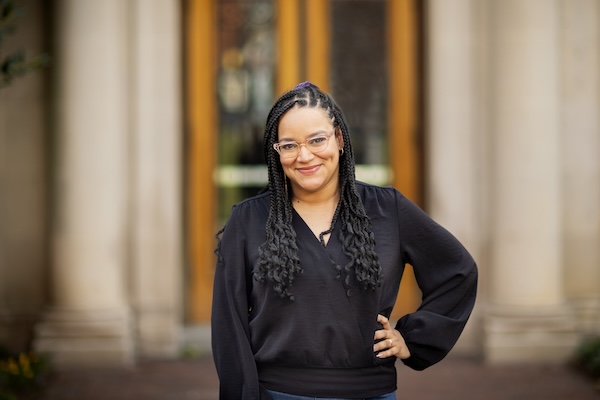
For Ro Encarnación, a doctoral student in Computer and Information Science (CIS) at Penn Engineering, computers have always been a source of wonder. She still remembers seeing one for the first time at the home of a family friend. “I would just stand by that room,” Encarnación recalls, “wanting to use the computer so badly.” In-Tech Academy, a combined middle and high school in her native Bronx, New York, introduced her to web design. “Creating websites using computing languages was like magic to me,” Encarnación says.
Today, Encarnación is one of the first doctoral students in Penn Engineering’s Human-Computer Interaction Lab, co-founded by Danaë Metaxa, Raj and Neera Singh Term Assistant Professor in CIS and Encarnación’s advisor, and Andrew Head, Assistant Professor in CIS. “Ro is an ideal founding lab member: driven, sharp and caring, with a powerful vision for her career,” says Metaxa. “In fact, she was just awarded the prestigious Graduate Research Fellowship from the National Science Foundation, a very well-deserved honor.”
Encarnación’s research focuses, broadly speaking, on algorithmic justice — the idea that people affected by algorithms in their day-to-day lives should have a say in how those algorithms are designed and used. “The goal is to make sure that these systems are designed in a way that adapts to community concerns,” says Encarnación.
Learn more about Encarnación and her research on the Penn Engineering AI website.
